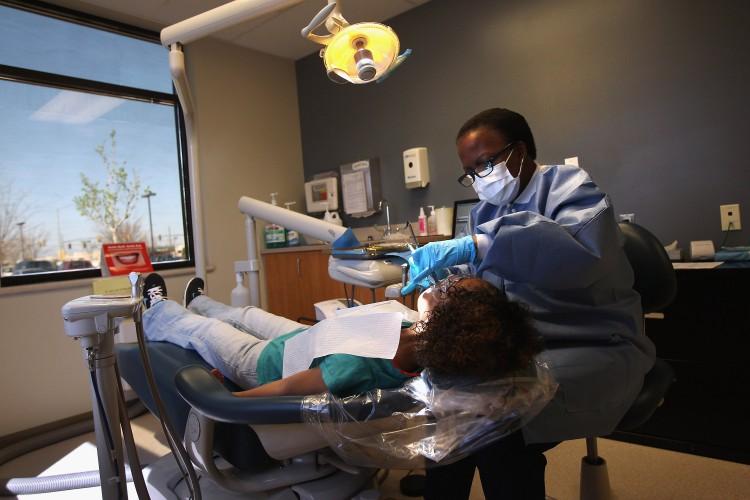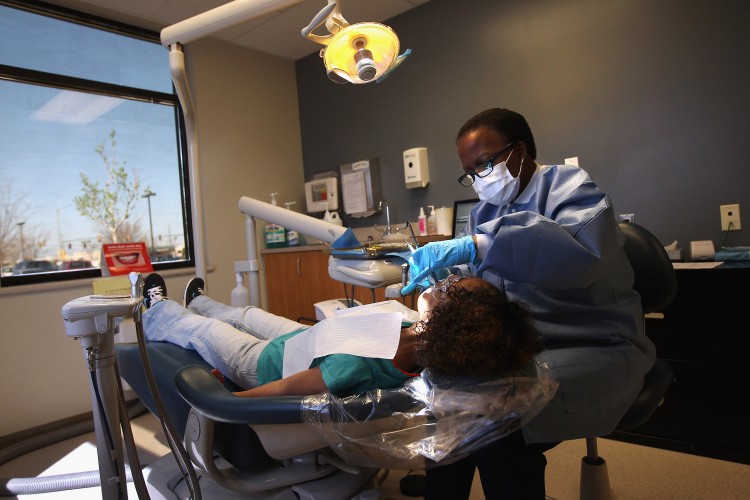President Barack Obama’s health care overhaul will cost less than it did before the Supreme Court ruling last month, but the decision runs the risk of leaving several million Americans uninsured, said the nonpartisan Congressional Budget Office (CBO) in a report on Tuesday.
The Supreme Court upheld the Affordable Care Act (ACA) but said that individual states could reject the expansion of Medicaid to poor people who make just a bit more than the federal poverty level.
The CBO predicts that a number of states will reject the Medicaid expansion, leading to an estimated reduction in the federal deficit by $84 billion over the next 11 years.
“The ACA will have a net cost of $1,168 billion over the 2012–2022 period—compared with $1,252 billion projected in March 2012 for that 11-year period—for a net reduction of $84 billion,” the CBO said in their report on ACA coverage estimates.
Two weeks ago, Gov. Rick Perry (R-Texas) said that his state would not expand on Medicaid or partake in other aspects of the health care reform measure, explaining that the move would bankrupt his state. Not partaking in the expansion would likely make Texas the most populous state to reject that portion of the law. Several other state governors have said they would also reject the ACA’s Medicare expansion.
In its report, the CBO said that it is not sure which states, if any, would take up these portions of the law.
“Moreover, how flexible executive branch agencies will be regarding the choices that states will have—particularly states’ options for pursuing partial expansions—is unclear,” the report states. “Hence, what states will be able to do and what they will decide to do are both highly uncertain.”
By the year 2022, the CBO said, around 6 million fewer people than previously estimated will be enrolled in Medicaid as a result of states opting out, which would actually lower the federal government’s costs. Approximately 2 to 3 million of these Americans will receive subsidies through insurance exchanges to replace the lack of Medicaid coverage.
There have been more than 30 attempts in the Republican-led House of Representatives to repeal the law in mostly symbolic gestures. The CBO said that repealing Obama’s health care reform would increase the federal deficit by $109 billion over the next decade.
Sen. Jim DeMint (R-S.C.), who sits on the Committee on Banking, Housing, and Urban Affairs, said on his website that the CBO’s assumptions “are worth examining in greater detail,” calling some of the CBO’s analysis into question.
He noted that the CBO’s analysis assumes that a tax on high-cost health insurance plans will go into effect in 2018, but there is debate whether Congress will act to avoid doing so.
“If Congress does act to avoid that tax, then the law will increase the deficit,” DeMint’s office stated on his website.
Sen. Max Baucus (D-Mont.), who serves as the Finance Committee chairman and was a key architect in the debate over health care reform, backed the CBO’s report.
“Repealing the law would only set our health care system back and add more than one hundred billion dollars to the deficit over the next decade. Now it’s time to stop the political gaming, implement the law and help as many Americans as possible get access to high-quality health care,” he said in a statement to reporters and editors on Tuesday.
The Epoch Times publishes in 35 countries and in 19 languages. Subscribe to our e-newsletter.






